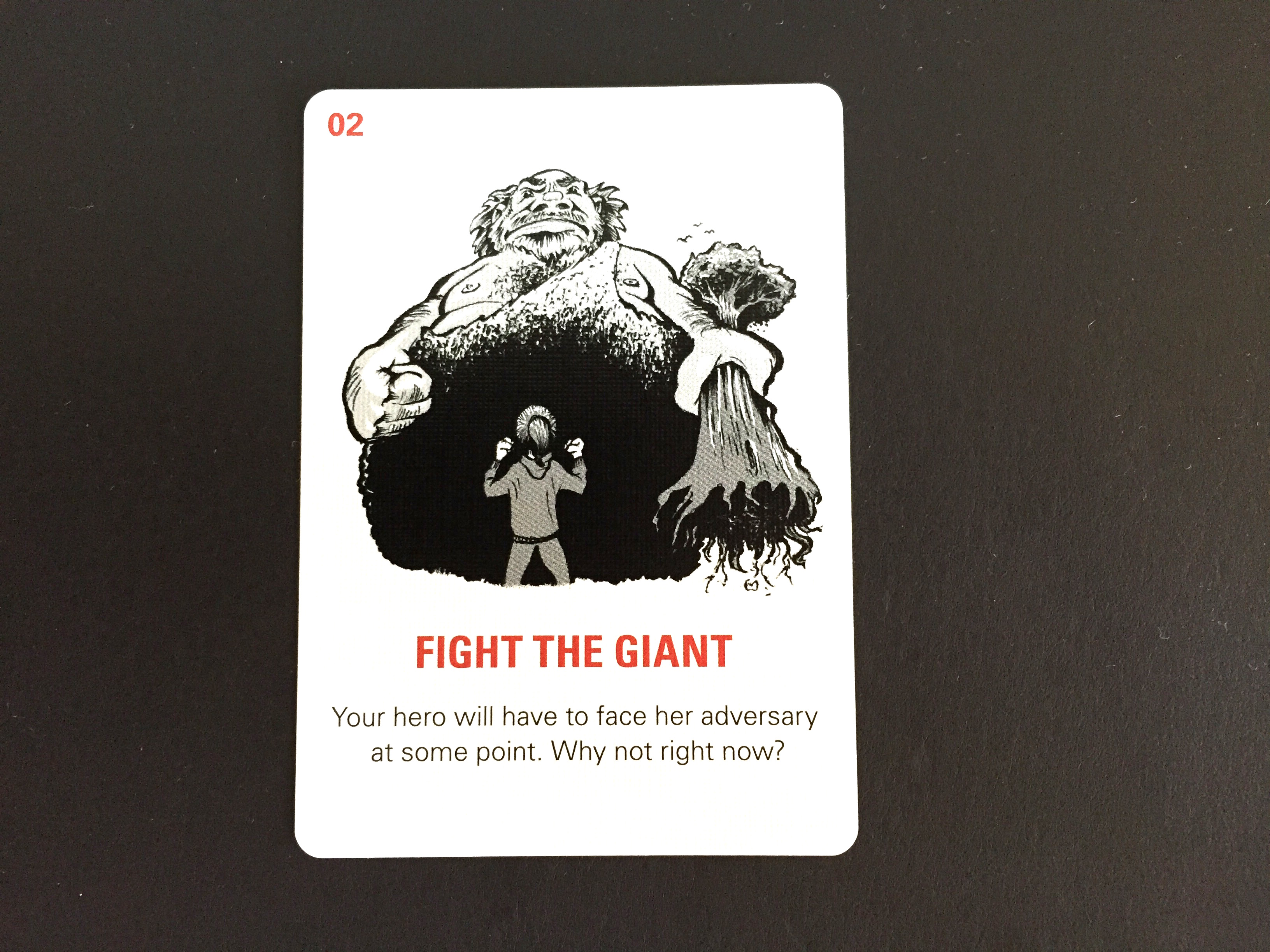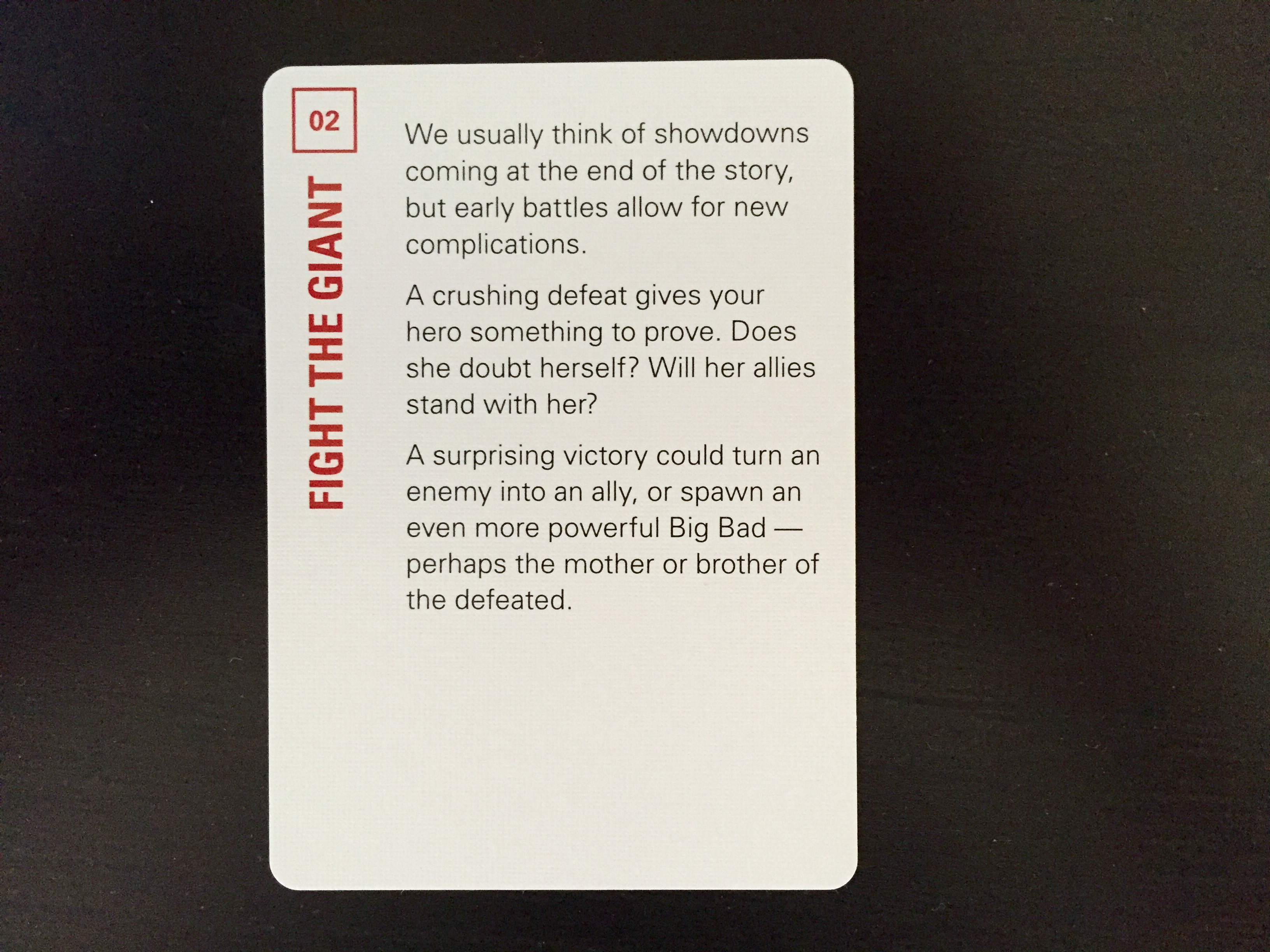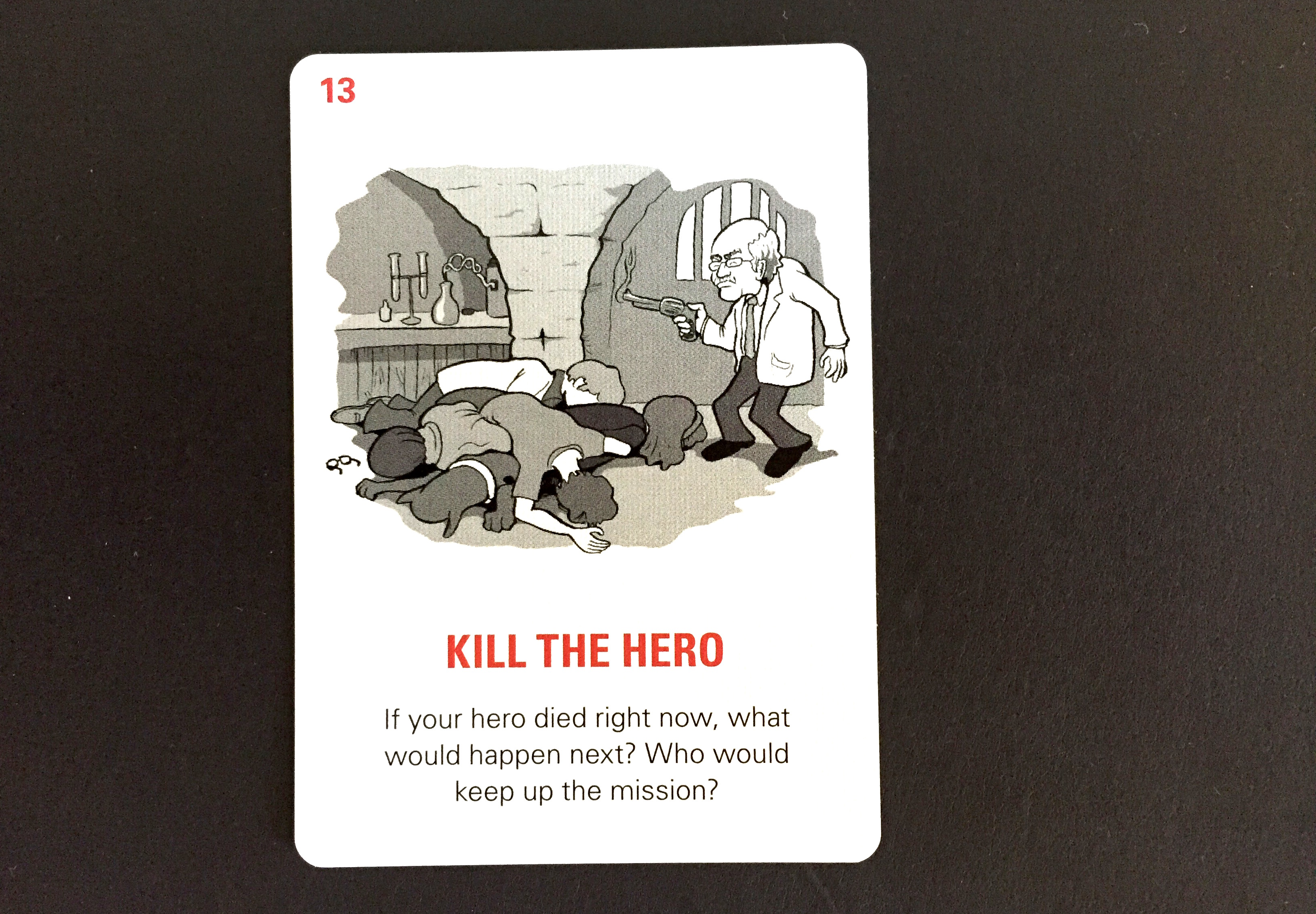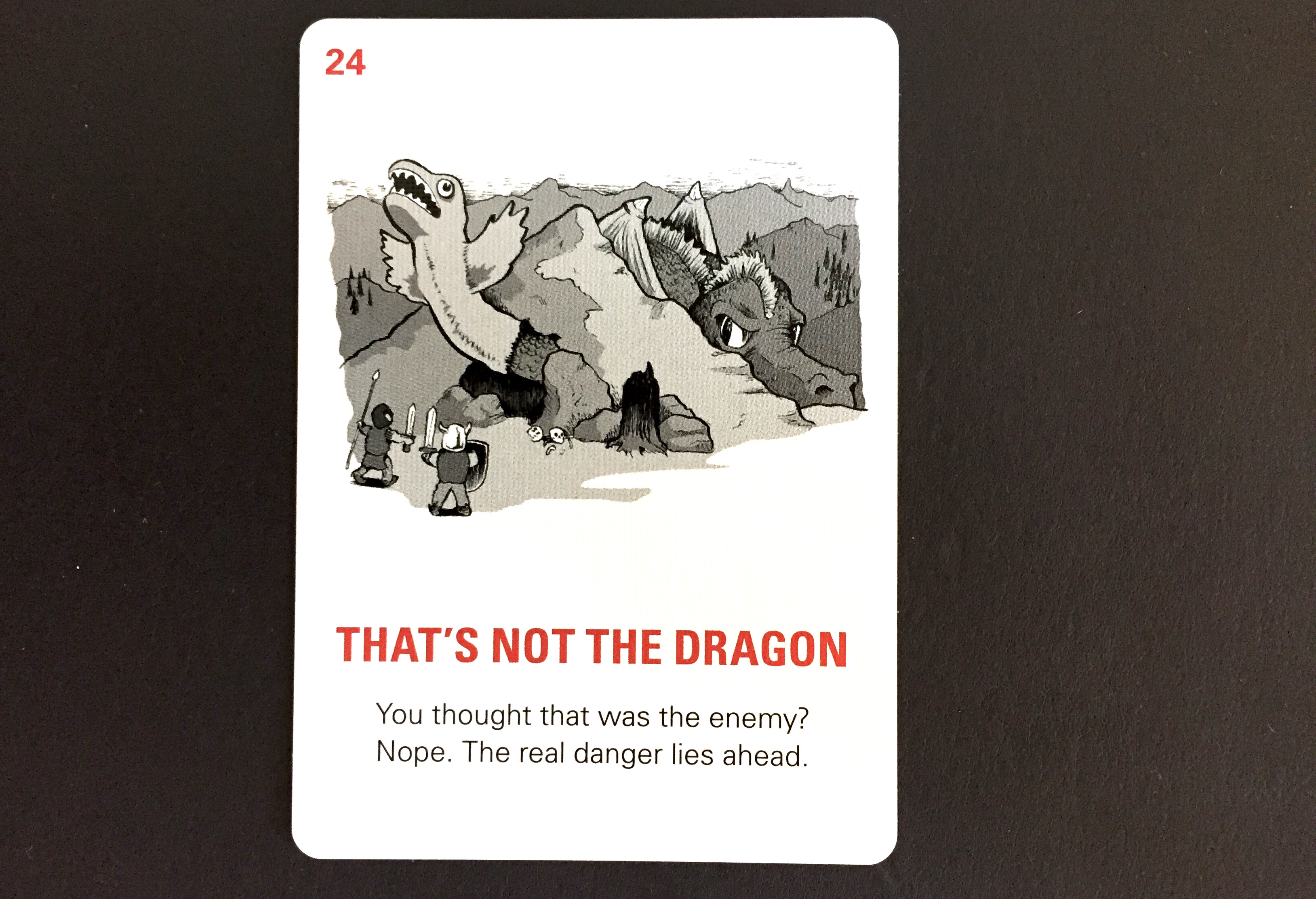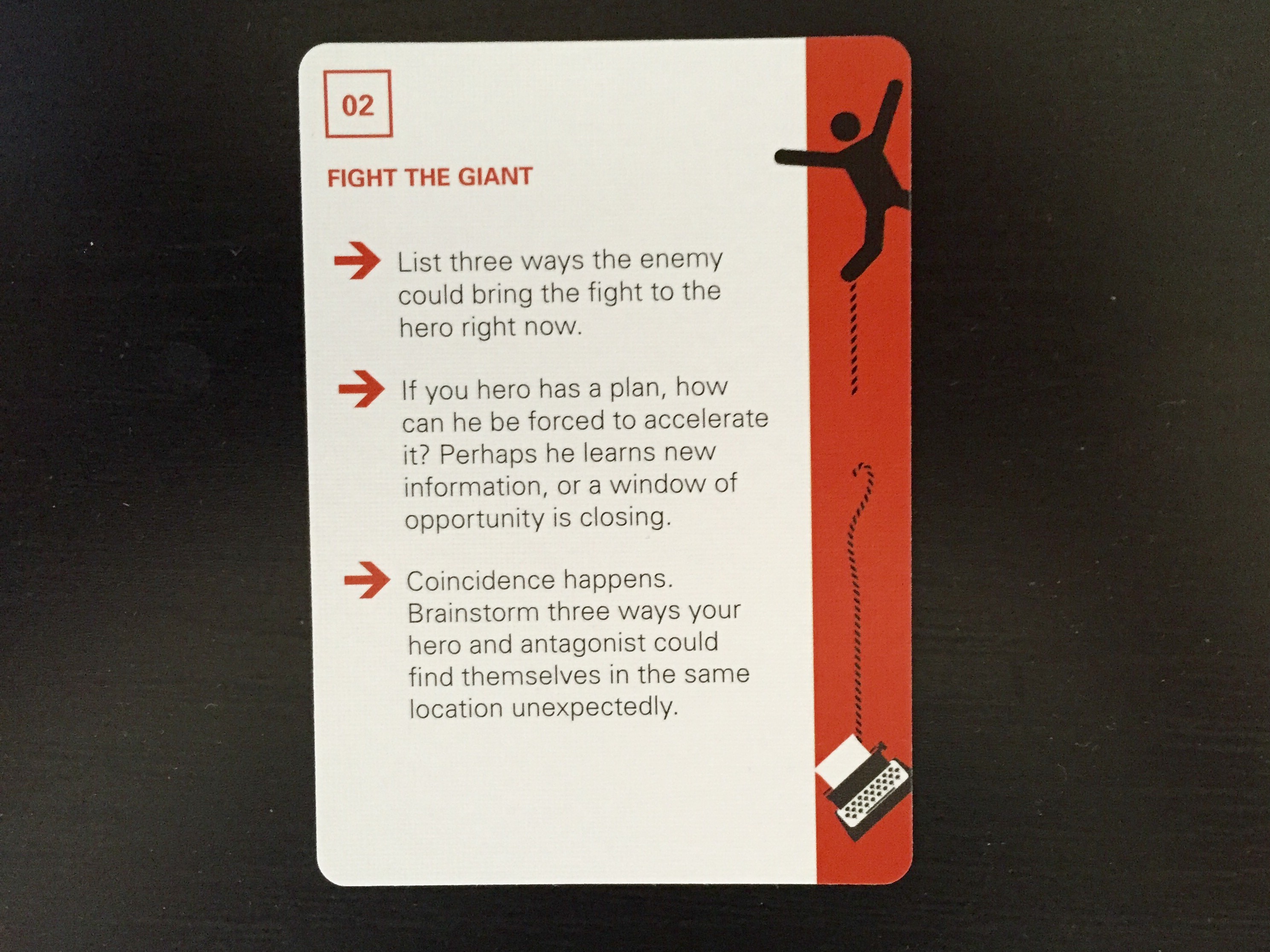In most stories built around a heroic quest, the big confrontation comes at the end. The heroes face off against their well-established nemesis, and likely prevail. After that, there’s a little time left for wrap-up and rebuilding.
This is the common pattern for most feature films, with a battle or competition happening in the third act.
But it’s not just movies. In novels, the showdown generally happens in one of the final chapters. In series television, the quest to defeat the Big Bad might span a whole season, but the main event comes in the finale. In videogames, this stage even has a name: The Boss Level. The player finally has the skills and hit points to kill Diablo.
Whenever you see such a clear narrative pattern, there’s a great opportunity to subvert it.
Moving the fight earlier can take both your reader and your hero by surprise.
There are three basic structures for getting the fight to happen earlier than expected.
The hero rushes in. Perhaps the hero gets a tip that the villain is momentarily exposed. She is forced to make a decision: go in fast or wait for the next opportunity. She decides to strike now, for better or worse. Without the benefit of time and planning, she is forced to improvise.
The villain surprises the hero. Rather than wait for the hero to show up, smart villains often attack first. In Harry Potter and the Goblet of Fire, J.K. Rowling lets Voldemort trap Harry so he can battle him face-to-face, breaking the expectation that the showdown would only happen at the very end. In the real world, the Japanese attack on Pearl Harbor is an example of the enemy changing the narrative with a surprise attack.
Fate intervenes. Some outside force — the boxing commission, an avalanche, pure coincidence — puts the hero and the villain in the same space when neither was quite ready for it.
However your hero and villain end up battling, the outcome should have a huge impact on the rest of your story.
Letting the giant score an early victory helps in several ways:
- You’ve established what a powerful threat the villain is.
- You’ve knocked your hero down. Almost anything that’s bad for your hero is good for your story.
- You’ve warned the reader not to assume your story will follow conventional patterns.
Maybe you’ve even decided to Kill The Hero:
Sometimes, it’s fun to let your hero win this early battle. Maybe the presumed villain wasn’t the ultimate villain after all — or in killing him, the hero has unleashed something much worse. Perhaps That’s Not the Dragon:
In most cases, both hero and villain will survive this early brawl, but both will be changed by the encounter.
Using Fight the Giant
Like every card in Writer Emergency Pack, Fight the Giant can be used at both macro and micro levels of the story process.
Fight the Giant might be a key plot point on which your entire story hangs. Perhaps an unexpected, early defeat sends your hero’s allies packing, and he must now assemble and train a new army from the remnants.
On a sequence level, Fight the Giant is a great way to ratchet up the tension. Your hero had a plan for how this was supposed to go down, but the villain had a plan of her own. And she moved faster.
Finally, Fight the Giant can be a great focus in a single scene. Your cat-burglar hero was expecting three minutes notice when the villain would be returning to his penthouse, but suddenly he’s here in front of him.
No matter how you use Fight the Giant, make the most of its surprise factor. Catch your hero flat-footed, and keep your heroes on their toes.
Fight the Giant is Card 2 of 26 in Writer Emergency Pack, which you can find in the Store and on Amazon.
